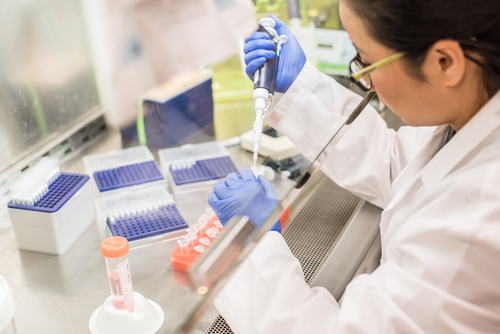Biophytis Teams With AFM-Telethon to Advance Sarconeos as Duchenne MD Therapy
Written by |

Biophytis SA is collaborating with AFM-Telethon to advance an oral pediatric formulation of Sarconeos (BIO101) for treating Duchenne muscular dystrophy (DMD).
The pact calls for the French muscular dystrophy organization AFM-Telethon to give €400,000 (about $452,000) to France-based Biophytis for further preclinical study. The funds also will go toward preparations for a clinical program named MYODA, which could be launched next year, Biophytis’ website states.
Under the agreement, regulatory clearance to conduct the MYODA trial in Europe, plus subsequent conclusive results, also would mean a future Biophytis collaboration with AFM-Telethon on a new MYODA project.
In addition to for Duchenne, the investigational small molecule is being developed for the treatment of other neuromuscular diseases, including sarcopenia. In early mouse studies, the treatment had a positive effect on mobility, as well as muscular and respiratory function.
Sarconeos works by activating the MAS receptor in muscle cells, a central component of the renin-angiotensin system (RAS). RAS is involved in the regulation of cardiac and muscle metabolism, and plays a key role in muscle function and mobility. Activation of the MAS receptor triggers multiple signaling pathways that are impaired in disorders such as DMD. Overall, the drug candidate has the potential to stop Duchenne’s progression and postpone mobility loss.
MYODA is designed to incorporate two innovative clinical features, including a seamless trial design that permits patients to participate from Phase 1 through Phase 3, and a primary endpoint (goal) that uses composite scores based on muscle strength, mobility and respiratory outcomes. The endpoint is adapted according to the severity of each person’s disease.
Last year, the compound received orphan drug designation from the U.S. Food and Drug Administration (FDA) and the European Medicines Agency. Later this year, the company plans to submit an investigational new drug (IND) application to the FDA, and clinical trial applications to regulatory agencies in Europe, to commence clinical development.
The dose-escalating Phase 1/2 clinical trial (MYODA-INT) is expected to recruit, assess and treat about 48 ambulatory and non-ambulatory DMD patients for up to 52 weeks. The first week of dosing would mainly assess safety, tolerability and pharmacokinetic characteristics. Barring serious safety issues during the first week, dosing would continue into Phase 2. After all participants have finished 12 weeks of dosing, researchers will conduct an interim analysis. The assessment process will repeat until a conclusion is reached.
Upon completion of the MYODA-INT stage, participants may be enrolled in an open-label extension period. Regulatory approval will be required before progressing into Phase 3.
”We are very pleased to have the support of AFM-Telethon for the development of Sarconeos (BIO101) in DMD through our MYODA clinical program which, subject to regulatory approval, intends to utilize a seamless clinical trial design with a composite score combining muscle strength, mobility and respiratory outcomes,” Stanislas Veillet, Biophytis CEO, said in a press release.
“DMD is a severe, genetic neuromuscular disease with limited treatment options. Our goal is to provide a safe and effective treatment option for both ambulatory and non-ambulatory patients suffering from this devastating disease, regardless the genetic mutation,” Veillet said.
An association of patients and caregivers, AFM-Telethon supports clinical trials that test therapies for various genetic diseases, including Duchenne.





